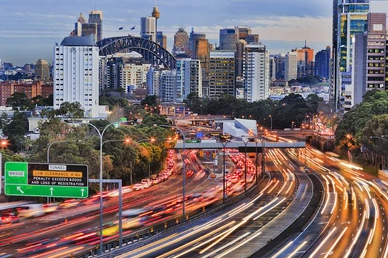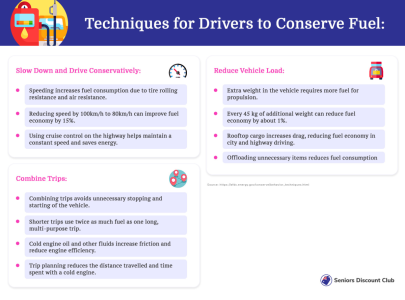Experts suggest reducing speed limits for popular SUV and ute models like Ford Ranger and Toyota Hilux
By
- Replies 20
Dual-cab utes, large SUVs, and older vehicles – they certainly have their appeal! Many people, regardless of age, appreciate these vehicles for various reasons.
Over the years, Australians have seen generations of families enjoy cruising in their Ford Ranger, Toyota Hilux or another similar vehicle, loading them up for family outings with the grandkids, hauling bulky purchases, or simply enjoying a smooth and comfortable ride.
However, the cost of owning and operating these vehicles goes beyond the significant fuel consumption and subsequent visits to the petrol station.
It may also contribute to environmental concerns and, as a result, lead to changes in how these beloved vehicles can be driven on Australian roads.
A recent report by The Australia Institute suggests that Australia's love for dual-cab utes, large SUVs and older vehicles has made the country one of the biggest petrol consumers in the world.
Consequently, this sparked the proposal to introduce lower speed limits for high-emission vehicles in an attempt to cut down on pollution and support climate change initiatives.
Professor Lennard Gillman from Auckland University of Technology summarised this idea best when he said: 'Lowering the speed limit for high emission vehicles has the double effect of cutting emissions but also incentivises people to buy low-emission cars.'

The professor also expressed his belief that the environmental benefit that comes from reducing speed limits will outweigh the extra time spent on the road.
Fuel consumption aside, what makes this proposal stand out is its intent to create a meaningful impact on the environment, particularly when it comes to carbon emissions.
'Lowering the speed limit for people with high-emission vehicles will be a much better incentive to buy a more efficient vehicle,' said Professor Gillman.
Additionally, he suggested that this new measure could be more effective and fair to low-income earners than increasing fuel taxes.
A 2017 New Zealand Transport Agency study revealed that reducing speeds from 100 km/h to 80 km/h can result in a 15% decrease in fuel consumption.
While this speed limit change may not sit well with everyone, it could mark a shift in society's approach to road behaviour and lend support to the urgent need to address climate change.
Professor Gillman pointed out: 'If it makes a huge difference in carbon emissions, which is destroying the planet we live on, surely we can make that sacrifice.'
According to an analysis conducted by The Australia Institute, a notable portion of transport emissions in Australia can be attributed to ‘poorly targeted tax incentives that encourage Australians to drive large, inefficient, dual-cab utes’.
The study revealed that Australia's transport emissions have increased by 17% since 2000, in stark contrast to countries such as the US, UK, and Japan, which have successfully reduced their emissions.
Matt Grudnoff, Senior Economist at the Australia Institute, emphasised that Australia has the potential to achieve significant emissions reductions and save billions of dollars in fuel costs simply by adopting more fuel-efficient vehicles.
The report highlighted that among Australia’s top 10 best-selling vehicles, five were dual-cab utes, three were SUVs, and only two were small passenger cars.
Furthermore, the report recommended several measures to address the issue.
Firstly, it suggested revising vehicle emissions tests to align with international standards.
Secondly, it proposed a commitment to transition all government fleets to electric vehicles by 2030.
Lastly, the report advocated for implementing a fuel efficiency standard to promote greater fuel efficiency in vehicles nationwide.
Professor Gillman warned about the potentially dire consequences of neglecting to take small steps towards reducing emissions.
He emphasised: ‘We're facing a climate crisis. We're on track to be 2C warmer, and many scientists believe that once it surpasses 2C, it will escalate to 5C or 6C.’
He further elaborated, stating that such a scenario would render much of the Earth uninhabitable and result in the loss of millions of lives.
Professor Gillman highlighted the resistance to emission reduction efforts: ‘Most of the pushback is from people who own these high-emission vehicles and believe it's their entitlement to do as they please.’
He underscored the urgency of the situation by pointing out that the impacts of climate change are already claiming lives, citing the occurrence of catastrophic storms worldwide.

Implementing such a bold measure carries immense potential to combat climate change, a pressing issue that demands urgent action.
However, it is crucial to bear in mind that driving in a fuel-efficient manner is also a valuable approach to reducing emissions.
Do you have tips for reducing your fuel consumption? Join the conversation in the comments and let us know your steps to reduce your carbon footprint!
We also recommend checking out this article to stay on top of some major road changes in the country.
Over the years, Australians have seen generations of families enjoy cruising in their Ford Ranger, Toyota Hilux or another similar vehicle, loading them up for family outings with the grandkids, hauling bulky purchases, or simply enjoying a smooth and comfortable ride.
However, the cost of owning and operating these vehicles goes beyond the significant fuel consumption and subsequent visits to the petrol station.
It may also contribute to environmental concerns and, as a result, lead to changes in how these beloved vehicles can be driven on Australian roads.
A recent report by The Australia Institute suggests that Australia's love for dual-cab utes, large SUVs and older vehicles has made the country one of the biggest petrol consumers in the world.
Consequently, this sparked the proposal to introduce lower speed limits for high-emission vehicles in an attempt to cut down on pollution and support climate change initiatives.
Professor Lennard Gillman from Auckland University of Technology summarised this idea best when he said: 'Lowering the speed limit for high emission vehicles has the double effect of cutting emissions but also incentivises people to buy low-emission cars.'

Renowned Professor Lennard Gillman urges Australia to impose lower speed limits on high-emission cars for massive carbon reduction and fuel savings. Credit: Shutterstock.
The professor also expressed his belief that the environmental benefit that comes from reducing speed limits will outweigh the extra time spent on the road.
Fuel consumption aside, what makes this proposal stand out is its intent to create a meaningful impact on the environment, particularly when it comes to carbon emissions.
'Lowering the speed limit for people with high-emission vehicles will be a much better incentive to buy a more efficient vehicle,' said Professor Gillman.
Additionally, he suggested that this new measure could be more effective and fair to low-income earners than increasing fuel taxes.
A 2017 New Zealand Transport Agency study revealed that reducing speeds from 100 km/h to 80 km/h can result in a 15% decrease in fuel consumption.
While this speed limit change may not sit well with everyone, it could mark a shift in society's approach to road behaviour and lend support to the urgent need to address climate change.
Professor Gillman pointed out: 'If it makes a huge difference in carbon emissions, which is destroying the planet we live on, surely we can make that sacrifice.'
According to an analysis conducted by The Australia Institute, a notable portion of transport emissions in Australia can be attributed to ‘poorly targeted tax incentives that encourage Australians to drive large, inefficient, dual-cab utes’.
The study revealed that Australia's transport emissions have increased by 17% since 2000, in stark contrast to countries such as the US, UK, and Japan, which have successfully reduced their emissions.
Matt Grudnoff, Senior Economist at the Australia Institute, emphasised that Australia has the potential to achieve significant emissions reductions and save billions of dollars in fuel costs simply by adopting more fuel-efficient vehicles.
The report highlighted that among Australia’s top 10 best-selling vehicles, five were dual-cab utes, three were SUVs, and only two were small passenger cars.
Furthermore, the report recommended several measures to address the issue.
Firstly, it suggested revising vehicle emissions tests to align with international standards.
Secondly, it proposed a commitment to transition all government fleets to electric vehicles by 2030.
Lastly, the report advocated for implementing a fuel efficiency standard to promote greater fuel efficiency in vehicles nationwide.
Professor Gillman warned about the potentially dire consequences of neglecting to take small steps towards reducing emissions.
He emphasised: ‘We're facing a climate crisis. We're on track to be 2C warmer, and many scientists believe that once it surpasses 2C, it will escalate to 5C or 6C.’
He further elaborated, stating that such a scenario would render much of the Earth uninhabitable and result in the loss of millions of lives.
Professor Gillman highlighted the resistance to emission reduction efforts: ‘Most of the pushback is from people who own these high-emission vehicles and believe it's their entitlement to do as they please.’
He underscored the urgency of the situation by pointing out that the impacts of climate change are already claiming lives, citing the occurrence of catastrophic storms worldwide.
Key Takeaways
- A top professor has called for Australia to lower motorway speed limits for SUVs and other high-emission vehicles to combat climate change.
- Australia's love for dual-cab utes, large SUVs, and older vehicles makes the country one of the biggest petrol consumers in the world.
- Professor Lennard Gillman suggests introducing differential speed limits for high-emission and low-emission vehicles to reduce their environmental impact.
- A study by the New Zealand Transport Agency found that reducing speed from 100 km/h to 80km/h results in a 15% reduction in fuel consumption.
Implementing such a bold measure carries immense potential to combat climate change, a pressing issue that demands urgent action.
However, it is crucial to bear in mind that driving in a fuel-efficient manner is also a valuable approach to reducing emissions.
Do you have tips for reducing your fuel consumption? Join the conversation in the comments and let us know your steps to reduce your carbon footprint!
We also recommend checking out this article to stay on top of some major road changes in the country.









